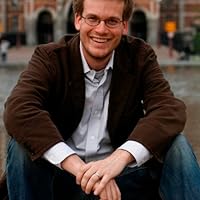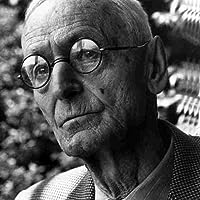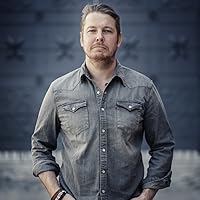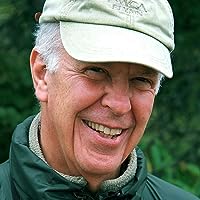Selfhood Quotes
Quotes tagged as "selfhood"
Showing 1-30 of 47

“One of the strange things about adulthood is that you are your current self, but you are also all the selves you used to be, the ones you grew out of but can't ever quite get rid of.”
― The Anthropocene Reviewed: Essays on a Human-Centered Planet
― The Anthropocene Reviewed: Essays on a Human-Centered Planet

“Following all the rules leaves a completed checklist. Following your heart achieves a completed you.”
―
―

“[Grief] is everything. It is the fabric of selfhood, and beautifully chaotic. It shares mathematical characteristics with many natural forms.”
― Grief is the Thing with Feathers
― Grief is the Thing with Feathers

“Once he said to her: 'You are like me; you are different from other people. You are Kamala and no one else, and within you there is a stillness and sanctuary to which you can retreat any time and be yourself, just as I can. Few people have that capacity and yet everyone could have it.”
―
―

“When we find that God's ways always coincide with our own ways, it's time to question who we're really worshipping, God or ourselves. The latter moves the nature of godliness from the King to our servant to a slave, a deduction into the realm of selfhood and then the lower, slavehood. It's a spiritual mathematics in that men who need God in his godhood are humble yet strong and spiritually ambitious while men who need a slave in their selfhood are ultimately paralyzed and will remain paralyzed.”
― Killosophy
― Killosophy

“Hold tight to what is most yourself,
Don't squander it, don't let your life
Be governed by what disturbs you.”
― Birds Through a Ceiling of Alabaster: Three Abbasid Poets
Don't squander it, don't let your life
Be governed by what disturbs you.”
― Birds Through a Ceiling of Alabaster: Three Abbasid Poets

“She was just one person out of several billion, and most people never become individuals to us. They're just people. We're just strangers passing each other, your anxieties briefly brushing against mine as the fibers of our coats touch momentarily on a crowded sidewalk somewhere. We never really know what we do to each other, with each other, for each other.”
― Anxious People
― Anxious People

“It’s a dangerous thing, to try and give someone everything. One day, you might find you’ve given away things you should’ve kept. Some parts of us must remain inviolate if we are to survive as a person.”
― My Darling Dreadful Thing
― My Darling Dreadful Thing

“All my life, I've been trying to fill an emptiness inside. But that emptiness...I've built myself around it. Filling it in would be like filling in the empty space within a cathedral.”
― Spellbound
― Spellbound

“Today I understand vocation quite differently-
not as a goal to be achieved but as a gift to be received. Discovering vocation does not mean scrambling toward some prize just beyond my reach but accepting the treasure of true self I already possess. Vocation does not come from a voice "out there" calling me to become something I am not. It comes from a voice "in here" calling me to be the person I was born to be, to fulfill the original selfhood given me at birth by God,”
― Let Your Life Speak: Listening for the Voice of Vocation
not as a goal to be achieved but as a gift to be received. Discovering vocation does not mean scrambling toward some prize just beyond my reach but accepting the treasure of true self I already possess. Vocation does not come from a voice "out there" calling me to become something I am not. It comes from a voice "in here" calling me to be the person I was born to be, to fulfill the original selfhood given me at birth by God,”
― Let Your Life Speak: Listening for the Voice of Vocation

“The king has great power, but he has no power to know me, except through what I say and what I do.”
― The Mirror & the Light
― The Mirror & the Light
“We are always coming into being. If our beings are subject to chances and choices, then there are numerous potential permutations for each one of us. We are capable of many things, and of those tasks within the scope of our innate reach, we will probably only realize a small percentage of successes. It is crucially important that we make the best decisions we can and efficiently utilize our allotted time to make the most out of our lives. While we do not control every aspect of our ultimate destiny, we can certainly waste our life on frivolities. Alternatively, we can work resolutely with passion and purpose and by doing so place a premium value upon a life that is otherwise utterly absurd. Human beings can use thoughts to direct free will in order to exert control over our personal attitude and behavior, monitor what we say and how we behave, and determine whom we associate with and whom we avoid. Human free will allows us deliberately to determine what subjects we wish to study and what theories we desire actively to integrate into our lives.”
― Dead Toad Scrolls
― Dead Toad Scrolls

“When I arrive to a new place, it is no longer the place it was before my arrival. And I am not the same person either. I change it and it changes me on the spot. And together we give the world a slightly different face.”
―
―
“It is a worthy quest to not simply develop a sense of identity, but become the magnanimous version of the self.”
― Dead Toad Scrolls
― Dead Toad Scrolls

“We're stuck in our
Selves,
And who else to be stuck in?
- New York to San Fran”
― Wait Till I'm Dead: Uncollected Poems
Selves,
And who else to be stuck in?
- New York to San Fran”
― Wait Till I'm Dead: Uncollected Poems

“These days, it is perhaps even more psychologically seamless than ever for an ordinary woman to spend her life walking toward the idealized mirage of her own self-image. She can believe – reasonably enough, and with the full encouragement of feminism – that she herself is the architect of the exquisite, constant and often pleasurable type of power that this image holds over her time, her money, her decisions, her selfhood and her soul.”
― Trick Mirror: Reflections on Self-Delusion
― Trick Mirror: Reflections on Self-Delusion

“We say that a human being is a person and a distinctive, fixed self with a name and a life. He has an identity. But what is this self really made of, except from the basic elements such as hydrogen, carbon, oxygen, phosphorus etc. and their subatomic particles? If a person is a specific, static, unchanged entity and existence, then what if an accident or a disease completely alters his body features? What if fear or madness changes his thoughts and perceptions? If dementia takes away his memories, or if drugs alter his emotions? And what if life circumstances, good or bad luck, modify his motives, his plans and his desires? Is it still the person we say he is? Or is selfhood a ghost, a useful fiction of the brain? An ever-shifting kaleidoscope of thoughts, feelings and perceptions? Flashes of hopes and desires? A bundle of alternating opinions and ideologies, of conflicting instincts and urges? If we take away all these from him, what would be left behind? If every drop of the ocean evaporates, is not the whole ocean gone? The immutable selfhood is a very old illusion and the last of illusions we ‘re going to abandon; if we ever will…”
― A PHILOSOPHICAL KALEIDOSCOPE: Thoughts, Contemplations, Aphorisms
― A PHILOSOPHICAL KALEIDOSCOPE: Thoughts, Contemplations, Aphorisms

“Depression demands that we reject simplistic answers, both 'religious' and 'scientific,' and learn to embrace mystery, something our culture resists. . . . Embracing the mystery of depression does not mean passivity or resignation. It means moving into a field of forces that seem alien but is in fact one's deepest self. It means waiting, watching, listening, suffering, and gathering whatever self-knowledge one can—and then making choices based on that knowledge, no matter how difficult. One begins the slow walk back to health by choosing each day things that enliven one's selfhood and resisting things that do not.”
― Let Your Life Speak: Listening for the Voice of Vocation
― Let Your Life Speak: Listening for the Voice of Vocation
“We must engage our sense of self to sensibly deal with environmental stresses in the ever-changing world. Without a strong sense of self and an equally robust ego, I might have expired long ago. Because I possess a brain that is capable of self-recognition and self-regulation, I reserve the opportunity to edit personal behavior. If I can exercise the necessary self-discipline, I can reposition an individualistic and egotistical sense of self-identity. A sense of self can lock us into self-destructive behavioral patterns. If we exhibit an inflexible sense of self, we are predisposed to act in a rigidly prescribed manner. Some of our personal decisions might not support our long-term best interest. The Neanderthals failed to adapt to environmental changes and paid the ultimate price with extermination of their species. I too face the challenge of either adapting to environmental stresses or expiring. My prior characterization of self-identity did not serve me well since it brought me to the brink of self-immolation. Accordingly, I must revise whom I think I am in order to adapt to the challenges of a rapidly changing environment by assessing who I was, determining who I want to become, and developing a disciplined approach to make the transition from what I was to who I seek to become.”
― Dead Toad Scrolls
― Dead Toad Scrolls
“We determine who we are during all acts of survival. Self-identity is an ongoing process of self-exploration and development of strength of character. Human pain is unavoidable. A person finds their immaculate core floating amongst the rubble of ruined dreams and imploded fantasies. With strength of mind and time tested character, a prudent person begins recasting a person’s quixotic outlook upon life into mature philosophy that will gird them against all the heartaches and tragedies of an earthly life.”
― Dead Toad Scrolls
― Dead Toad Scrolls
“An argument can be made that while all people are born and die and during their lifetime they will lead almost identical lives devoted to fulfilling their will by eating, sleeping, procreating, taking care of their children, and building shelters. This still allows for innumerable personal decisions how to conduct our lives. For instance, identical twins share many physical traits but their personalities vary. How everybody reacts to a physical world, and the mental decisions that they make affects the trajectory of their life. Given the vast world that we must operate within our choices regarding how to live are only limited by our knowledge, ethics, abilities, imagination, and physical constraints. Accordingly, the outcome of our lives is not certain, fixed, ordained, or fated, but rather a mystery that we can assist pen with our conscious, deliberative actions. In other words, we might do what we do in certain situations because who we are, but we have some say in what we are.”
― Dead Toad Scrolls
― Dead Toad Scrolls
“Assuming that external physical causes do not entirely proscribe the outcome of our life journey, we have some say in not only what we do, but also in determining what situations we find ourselves needing to respond, and a combination of our conscious and unconscious responses continue to shape our being.”
― Dead Toad Scrolls
― Dead Toad Scrolls
“In spite of honest efforts to annihilate my I-ity, or merge it in what the world doubtless considers my better half, I still find myself a self-subsisting and alas! self-seeking me.”
―
―
“We now live in a world where notions of selfhood have become increasingly malleable,”
― Goodbye, World! Looking at Art in the Digital Age
― Goodbye, World! Looking at Art in the Digital Age

“I heard she married some hunter, well, they all marry hunters, so did I, ha! You’re just as foolish I expect, young girls are, some lad catches your eye and there’s your whole life gone, snap, a lap full of babies and grandbabies and it’s all over, you’re an old woman knitting at the hearth and that’s it, that’s it!’
I could not wait to get out of there. She shrank my whole life to the size of a poppy seed, and ate it.”
― Listening at the Gate
I could not wait to get out of there. She shrank my whole life to the size of a poppy seed, and ate it.”
― Listening at the Gate

“She did not care what some pampered citizens thought of her. She knew her worth.”
― The Viking She Would Have Married
― The Viking She Would Have Married

“To be in favour of solitude is not to be against community or friendship or love. It's not that being alone is better, just that without the experience of it we block ourselves from discovering something enormously beneficial, perhaps even vital, to selfhood. Who are you when you are not a friend, a partner, a lover, a sibling, a parent, a child? When no one is with you, what do you do, and do you do it differently than if someone was there? It's hard to see someone fully when another person is always attached to them. More importantly, it's hard for us to see our own selves if we're not ever alone.”
―
―
“Fear of the abyss, then, might span the deepest recesses of the psychodrama of selfhood and much more mundane and awkward anxieties about human status. Somewhere between fear and oblivion and fear of what the neighbours might say. Collapsing the distance between the biggest and the smallest questions, as if there were no difference between asking, 'Why am I here?' and asking 'What do they think of me?”
―
―
All Quotes
|
My Quotes
|
Add A Quote
Browse By Tag
- Love Quotes 97k
- Life Quotes 75.5k
- Inspirational Quotes 72.5k
- Humor Quotes 43.5k
- Philosophy Quotes 29.5k
- Inspirational Quotes Quotes 27k
- God Quotes 26k
- Truth Quotes 23.5k
- Wisdom Quotes 23.5k
- Romance Quotes 23k
- Poetry Quotes 22k
- Death Quotes 20k
- Happiness Quotes 18.5k
- Life Lessons Quotes 18.5k
- Hope Quotes 18k
- Faith Quotes 18k
- Quotes Quotes 16.5k
- Inspiration Quotes 16.5k
- Spirituality Quotes 15k
- Religion Quotes 15k
- Motivational Quotes 15k
- Writing Quotes 14.5k
- Relationships Quotes 14.5k
- Life Quotes Quotes 14k
- Love Quotes Quotes 13.5k
- Success Quotes 13.5k
- Time Quotes 12.5k
- Motivation Quotes 12k
- Science Quotes 11.5k
- Knowledge Quotes 11k


